P.E.I. farmer worries stray voltage is harming his cattle
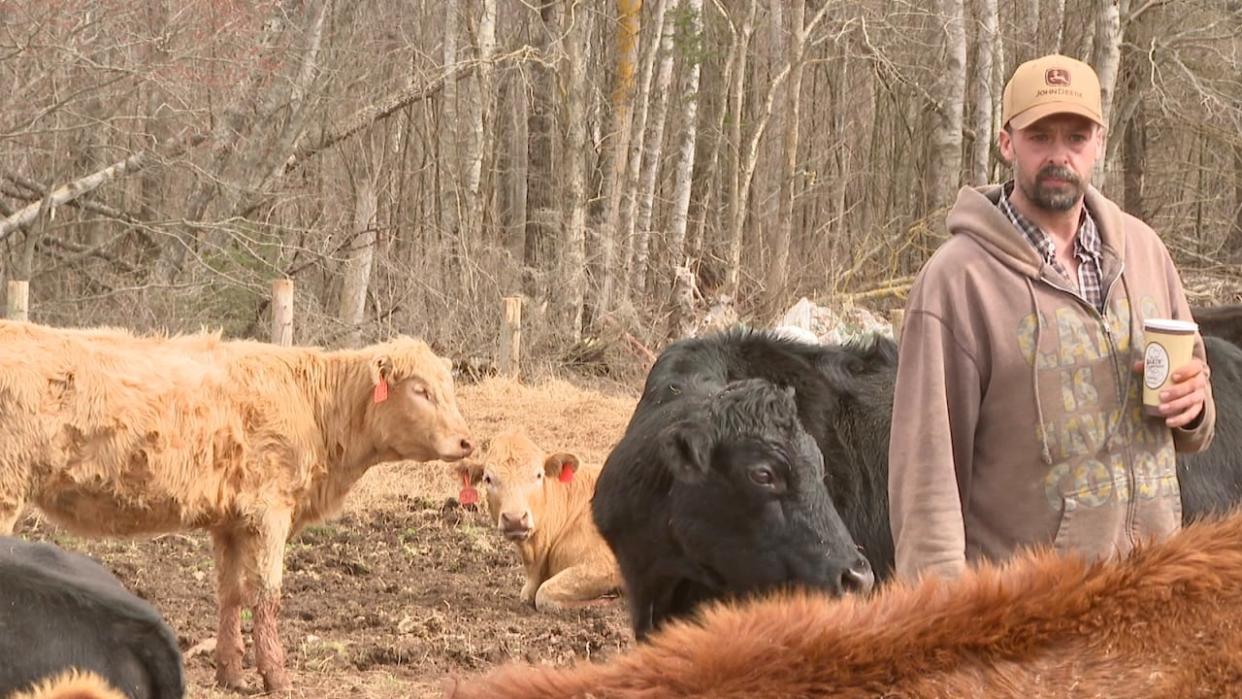
WARNING: Some may find this story contains distressing photos or content
It started with calf number 123.
"He was perfectly fine and drinking on a cow," said John Gallant, who owns beef cattle on his third-generation farm in St. Timothée, P.E.I., near Wellington.
He jumped on his tractor and was backing out when he saw something strange.
"The calf was laying pretty much lined up with the side of this fence post in the middle of a water puddle there, stiff as a board with his eyes rolled behind his head."
Gallant said he sprung into action — pulling the calf out of the puddle and onto dry land. To his surprise, it jumped to its feet and ran away.
But then "he started flopping on the ground and bounced up again and ran another 100 feet and did the same thing."
Other unusual things were going on, too. What he calls "scorched burn marks" appeared on some of his cows' backs. His calves showed similar spots around their ears, nose and eyes.
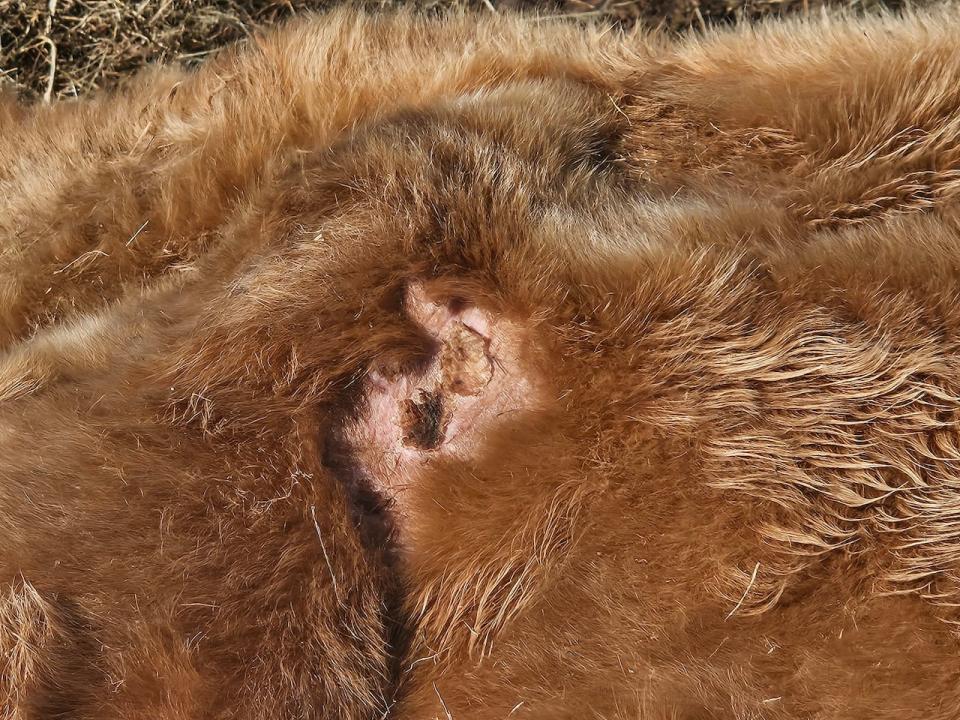
Gallant says the phenomenon is causing burn marks on his cattle and their nails are falling off. (John Gallant)
Gallant thinks what's happening is something known as stray voltage, and he feels his cattle were "getting electrocuted out in an open field."
"My very first phone call to Maritime Electric was: 'My cattle are in a frying pan, it's time to turn down the heat,'" he said.
'Cattle are especially sensitive'
Aside from Gallant's allegations and his own personal testing with equipment, including an ammeter that measures electrical currents, there is no evidence that these incidents are specifically caused by electricity.
But an expert says stray voltage on farms is possible.
According to Ian Nokes, who researches how energy impacts farms with the Ontario Federation of Agriculture, stray voltage — also known as tingle voltage — happens when an unwanted electrical current moves from one spot to another.
It's tricky because the symptoms the cattle is expressing, you're not going to think right away, 'Well it's getting tingle voltage.' — Ian Nokes, Ontario Federation of Agriculture
He said one of the first steps is figuring out where it's coming from: Maritime Electric's system or equipment on the farm like faulty wiring or something that isn't properly grounded and leaking current.
"When this current is flowing through the ground, it wants to go anywhere it can to get back to the source," he said.
"Cattle are especially sensitive to this."
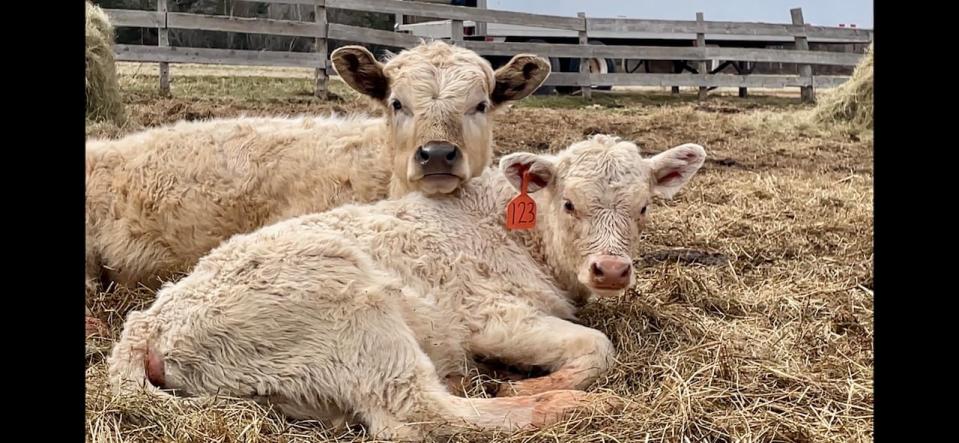
Calf number 123 is now doing better since moving off of Gallant's farm with the rest of his herd. (Sheehan Desjardins/CBC News)
Nokes said in Ontario it's considered an issue if the stray current exceeds one volt. Although he can't comment on Gallant's situation specifically, he said he has seen tingle voltage "devastate" farmers.
"You can imagine the stress and the mental anguish when you just see these animals suffering can be astronomical. Financially, you know, people lose whole herds " he said.
"It's tricky because the symptoms the cattle is expressing, you're not going to think right away, 'Well it's getting tingle voltage.'"
Maritime Electric investigates
Gallant said Maritime Electric has been to his property a few times since he contacted them. But he said the issue continues.
Maritime Electric did not provide an interview but did send an emailed statement that said it "takes all customer safety concerns seriously and has had its Engineering and Operations teams complete a thorough investigation into this matter."
It is something that is very slow. It starts off with nothing but a slight little tingle at the tip of a finger. — John Gallant
Gallant said one night the power was off for about 40 minutes while the utility was doing work. When the lights came back on, he said he had three animals collapse within 45 minutes — one died a few days later.
Gallant turned off the power in his barn and hasn't turned it back on since.
"I have gotten three electrical shocks inside the barn," he said.
"It's not something that's a big jolt and a spark and everything goes boom and everything's all over. It is something that is very slow. It starts off with nothing but a slight little tingle at the tip of a finger."
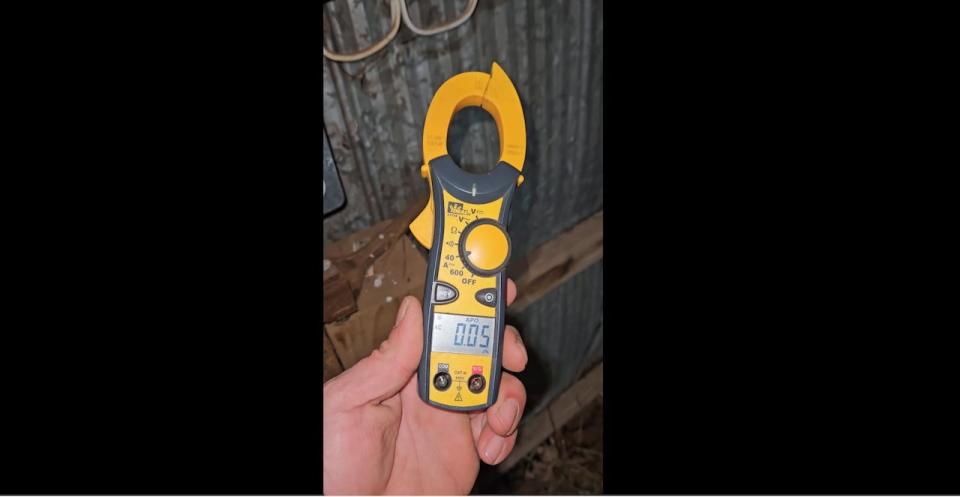
Gallant has been doing his own testing with an ammeter to try and solve the problem. (John Gallant)
But according to Maritime Electric, "the findings have concluded that all the Company's equipment, including the neutral current and voltage readings on Maritime Electric's power line at or near the customer's property are operating within the requirements set out by the Canadian Standards Association and in the Canadian Electrical Code."
Ringworm, frostbite, neglect? Vet says no
Gallant is aware his theory might seem far-fetched and knows people might wonder if what is impacting his cattle could be something else like ringworm, frostbite, the feed he uses, or even neglect.
But one of his veterinarians, Dr. Wade Sweet, said although he can't confirm it's due to electricity, he doesn't think it's any of those other things either.
"I've worked with John for years. He runs the community pasture. He knows how to feed animals and his feed quality is excellent. He's not mistreating his animals," said Sweet.
"In the fall, they were all in excellent condition ... there just seems to be something that we can't quite define with his animals."
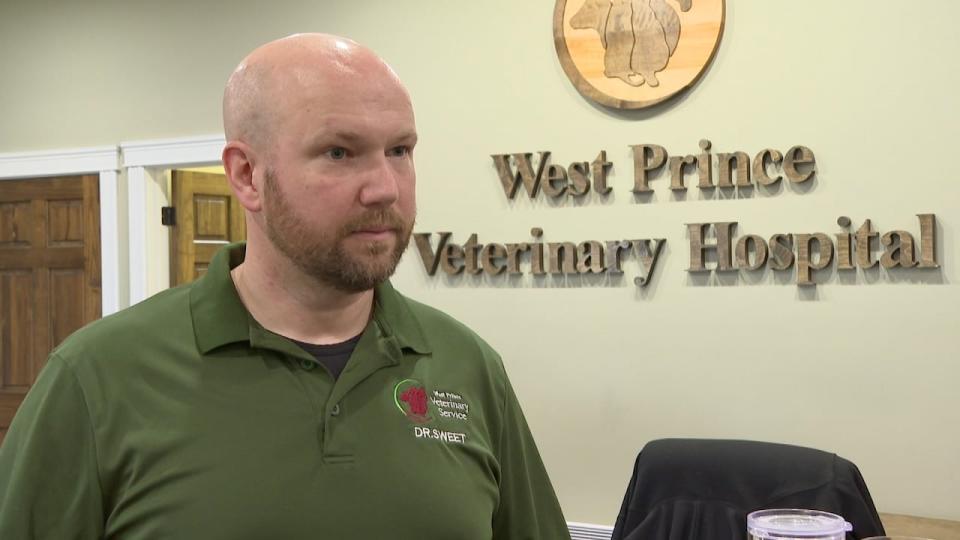
Veterinarian Dr. Wade Sweet says Gallant is a good farmer and takes good care of his cattle. (Sheehan Desjardins/CBC News)
Gallant's pasture is now empty. Sweet recommended he move his cattle to another location off his farm until the electrical issues are investigated.
"It brought back all the memories of my childhood, of what we experienced in that barn over there."
The barn Gallant is pointing to is empty these days. Growing up, it's where the family milked dairy cows. But he said his family sold them all in 1992 "because we couldn't keep healthy animals year-round in that barn."
Gallant said this has been an issue before. A CBC P.E.I. story done that same year shows an electrical engineer at Gallant's farm doing tests for stray voltage and speaking with other farmers about the issue.
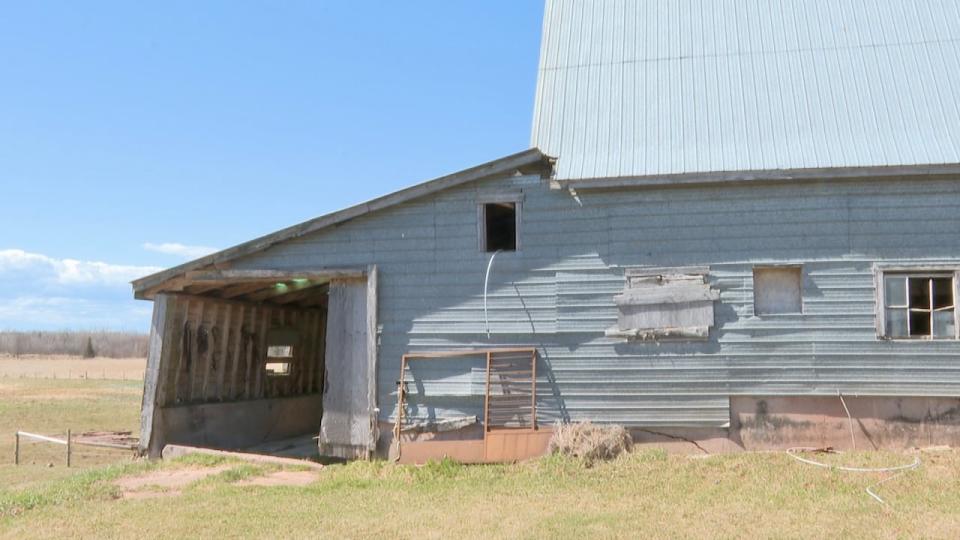
Gallant says the situation in his barn has happened before when his family owned dairy cows in 1992. (Sheehan Desjardins/CBC News)
Three years ago, Gallant bought beef cattle hoping things would be different.
"I have no words. I simply have no words," he said. "This is absurd and it's not new. That's the biggest part of my issue right now. We screamed about this a long time ago."
Still wants answers
In its statement Maritime Electric said, "We have encouraged the customer to engage a qualified electrician to investigate any potential electrical or grounding issues associated with the customer-owned equipment and buildings on his property."
The provincial government declined to comment, saying it would defer to Maritime Electric.
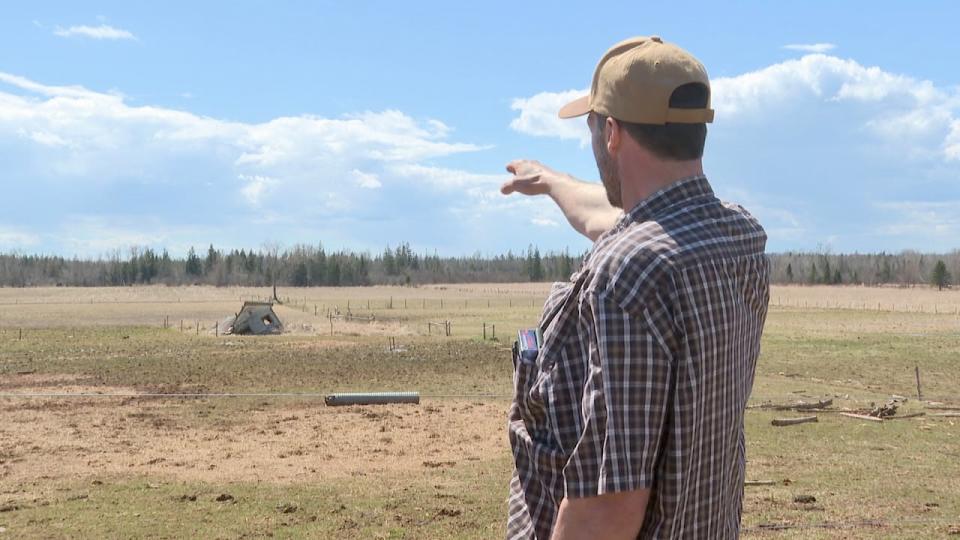
His pasture now sits empty, but Gallant knows he'll have to bring his cattle back to the farm at some point. (Sheehan Desjardins/CBC News)
For now, Gallant said his cattle appear to be improving in their temporary home. He knows they can't stay there forever though, and he worries about his family who are still living on the property.
"If I can't have cows again on this property, I can find another job but I can't move out of my house," he said.

Gallant thinks his cows are doing better and their wounds are improving after being moved off of his farm. (Sheehan Desjardins/CBC News)
Still, he knows stray voltage is hard to prove and he is hoping to find an expert who can help.
"It's something that can't be seen [and] unless you get electrocuted it can't be felt. But the cows can't lie," he said.
"This is an issue that needs to be resolved immediately. It needs to be dissected and figured out what is wrong and let's get on this because nobody should be living in these conditions."


